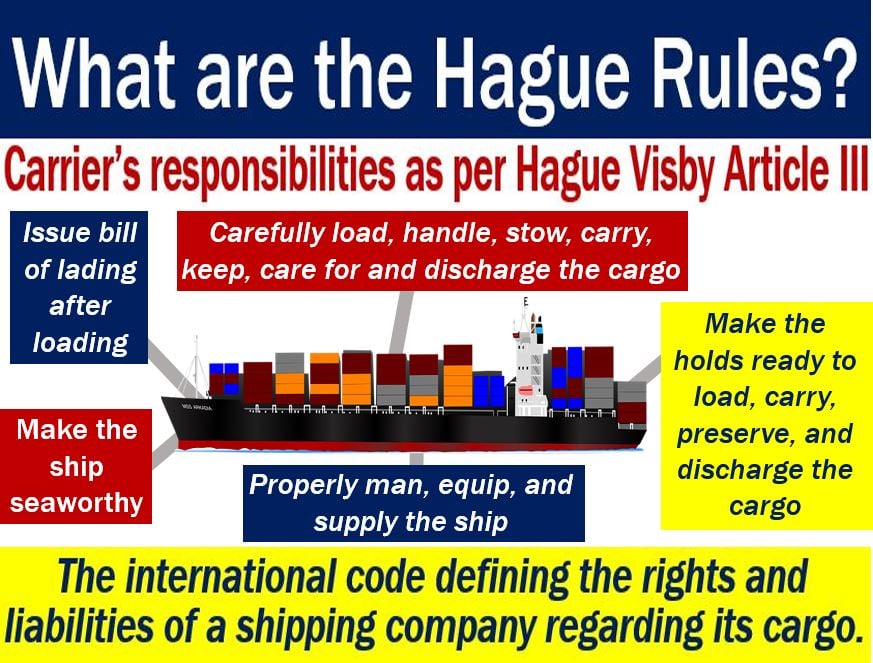Hague Rules – definition and meaning
The Hague Rules refers to an international code that defines the liabilities and rights of ocean carriers and shippers. The International 1922 convention at The Hague is related specifically to goods covered under a bill of lading. A bill of lading is a receipt that the ship’s master gives the person who is consigning the goods. It is a detailed list of the cargo.
We refer to the Hague Rules formally as the International Convention for the Unification of Certain Rules of Law relating to Bills of Lading, and Protocol of Signature. The rules aimed to regulate and bring uniformity to bills of lading globally.
The Hague Rules were the result of widespread disagreement between insurers and shippers.
There was dissatisfaction regarding the arbitrary restrictions that carriers imposed to limit their liability of lost cargo. They also imposed restrictions on the liability regarding cargo damage.
Approximately 90% of countries globally follow the Hague Rules. When the 1936 Carriage of Goods by Sea Act (COGSA) came into force, the United States also adopted the rules.
The Financial Times’ glossary of terms, ft.com/lexicon, says the following regarding the Hague Rules:
“A set of internationally accepted rules that must be followed when sending goods by sea.”

Why did the Hague Rules emerge?
Before the Hague Rules, only common law protected the owners of cargo. The Hague Rules represented the international community’s first attempt to define shippers’ liability. Specifically, to define their liability regarding the loss or damage of cargo they were transporting.
Until the new Rules came into force, shipowners frequently excluded themselves from liability.
The Hague Rules aimed to establish a minimum mandatory liability of carriers of goods by sea.
Under the Hague Rules, shipping companies can avoid liability for risks resulting from human errors. However, they must prove that they provided due diligence and that their vessel was seaworthy. To carry out due diligence means to check that everything is in order.
They must also show that their crew manned the ship properly.
The international community amended the Rules in 1931, 1977, and 1982. It is now called the Hague-Visby Rules.
Other shipping rules
Also, the Hamburg Rules, which the United Nations established, became effective in 1992. The Hamburg Rules are fairer and more relevant to the modern world of shipping.
The Rotterdam Rules are much more radical and extensive than any previous cargo rules. However, only three countries have so have ratified them. Therefore, the Rotterdam Rules are not yet in force.

